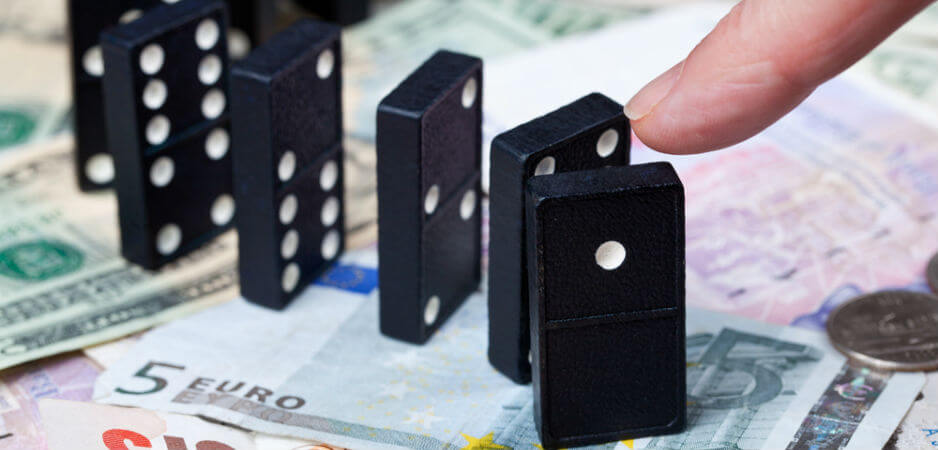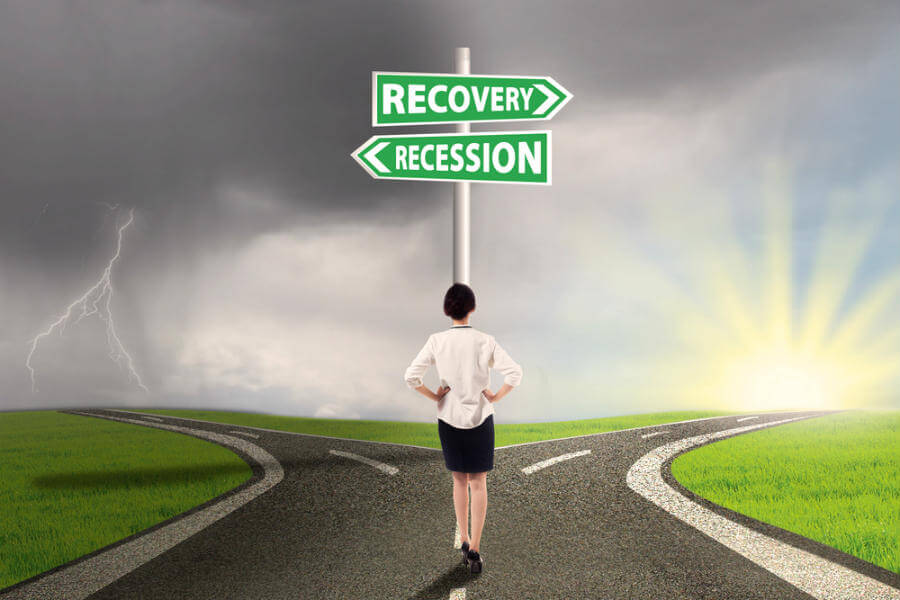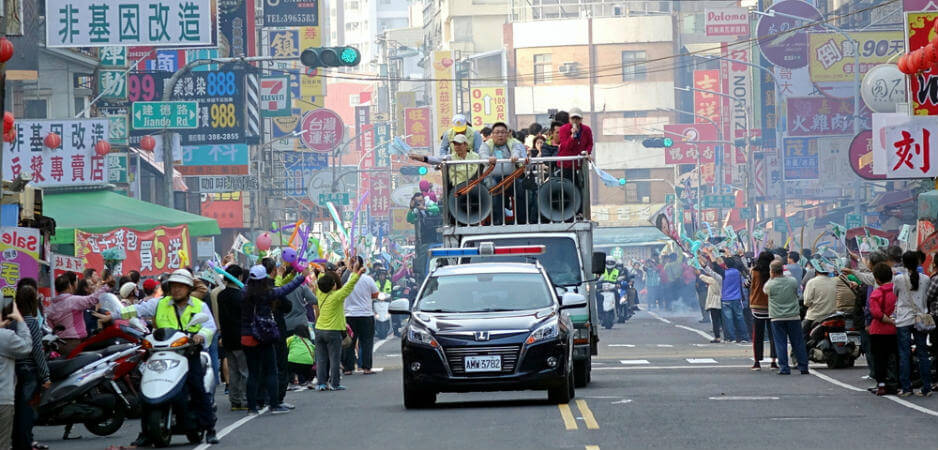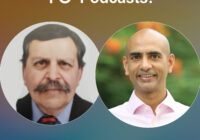The sharp fall in markets worldwide indicate that rising prices induced by the munificence of central banks can no longer keep going up.
On January 20, markets tumbled from Tokyo and Dubai to London and New York. Three concerns torment investors. First, the slowing Chinese economy terrifies them. The dragon is no longer breathing fire and the global economy is going cold. Second, falling oil prices are a signal that demand is slowing down. Naturally, companies in this sector are suffering and many are in peril. This drives down their share prices in particular and markets in general. Third, many fear that quantitative easing (QE) has reached its limits and this printing of money is damaging the economy. QE was the last weapon that central banks had in their armory and it is no longer working.
Since 2015, this author has been increasingly uneasy about the global economy. The reasons are simple. Central banks have opened their hose pipes and filled the global economy with money. Their hope is that people will spend instead of stash their money in the bank. Companies will borrow and increase production. Increasing consumption and production will lead a virtuous cycle and an uptick in the global economy.
The reality is slightly different. The rich part of the world already has far too much stuff. After all, how many more television sets and sneakers can Americans buy? Chinese factories that have been buzzing away to supply Walmart and Costco are finding that US demand cannot increase incessantly. Most Americans are deep in debt because of student loans, mortgages and credit cards. American consumption can no longer keep Chinese factories busy as in the past. There is a demand problem.
At the same time, there is a supply problem. China has increased production at a spectacular scale. It is the workshop of the world. The scale and speed at which China constructs ports, railways, roads, factories and flats is frightening. Chinese goods are sold all the way from the US and Europe to Africa and India. There are too many Chinese factories churning out too much stuff.
The Chinese economy has reached an inflection point. As a country, China has achieved a transformation that is breathtakingly staggering. As a result, it is deeply vulnerable to market shocks because of its integration with the global economy. Yet its institutions have not kept pace. It responds to new crises using old communist-era tools that simply do not work anymore.
On August 24, 2015, Chinese stock markets suffered “Black Monday” that wiped off trillions of dollars of wealth. The Chinese authorities reacted in panic and tried to catch a falling knife, cutting themselves deeply in the process. China was experiencing what the US experienced in the 1920s. People were incurring debts to play the stock market. When the party stopped in 1929, many were left without their shirts. Luckily for the Chinese, not too many of its citizens were speculating in the stock market. Chinese authorities did not have to prop up the market.
Chinese investors playing the market were the affluent section of their society. If they lost money on the market, so be it. Instead, the Chinese authorities took the money saved by its poor citizens and threw it to those who were rich by trying to keep up share prices. They achieved nothing but shaking confidence in their ability to handle future crises. Even more importantly, they indulged in what the US government engaged in during the bailouts of the big banks: capitalism on the upside and socialism on the downside. Private players gain benefits while tax payers bear the risk and pay the bill.
This transfer of wealth from the poor to the rich has been going on for a while in China. Those with good guanxi get loans from state-owned banks to build apartments or factories. The money in these banks comes from deposits of millions of workers, teachers and other ordinary folks. This money is invested terribly and bad debts in China run into trillions of dollars.
Oil prices are falling in no small part due to the decline in Chinese demand. Commodity prices are falling for the same reason. Countries like Brazil, Chile, South Africa and Australia are suffering as a result. In 2015, this author predicted that the Chinese slowdown would lead to declining, trade, growth and returns to capital. That is coming to pass. Something else that is occurring is the flight of Chinese capital for safe havens, which demonstrates the plunging confidence in the economy of the Middle Kingdom.
Falling oil prices reveal that supply exceeds demand. With sanctions on Iran ending, there is even more oil sloshing around. Oil provides a large chunk of the world’s energy, particularly for transportation. Falling prices put pressure on companies in this sector. In 2015, 39 oil field service companies went bankrupt. Many others will turn off drilling rigs and shut down oil wells. Panic and fear have now replaced irrational exuberance in the oil sector. This sentiment is affecting the market as a whole in a classic example of what John Maynard Keynes once called “animal spirits.”
It is these animal spirits that central banks have tried to stimulate for the last few years. Instead, increased money in the economy has only led to rising asset prices, whether of property or shares. A bubble has been brewing in many parts of the world, but the real economy has not become dramatically more productive or increased human welfare. Bill Gross, a legendary investor who once headed PIMCO and now runs Janus Capital Group, has been damning in his assessment of central banks and the economy.
Gross points out that even if central banks lower interest rates, people may just keep money in cash instead of invest in a security that might lose value. In a brutally candid article dated January 7, this billionaire almost manages to sound Marxist. He compares the Romans giving their Plebian citizens a day at the Coliseum to developed economies providing “Fantasy Sports, cellphone game apps, sexting, and fast food to appease the masses.” He goes on to write: “Keep them occupied and distracted at all costs before they recognize that half of the US population doesn’t go to work in the morning and that their real wages after conservatively calculated inflation have barely budged since the mid 1980’s.”
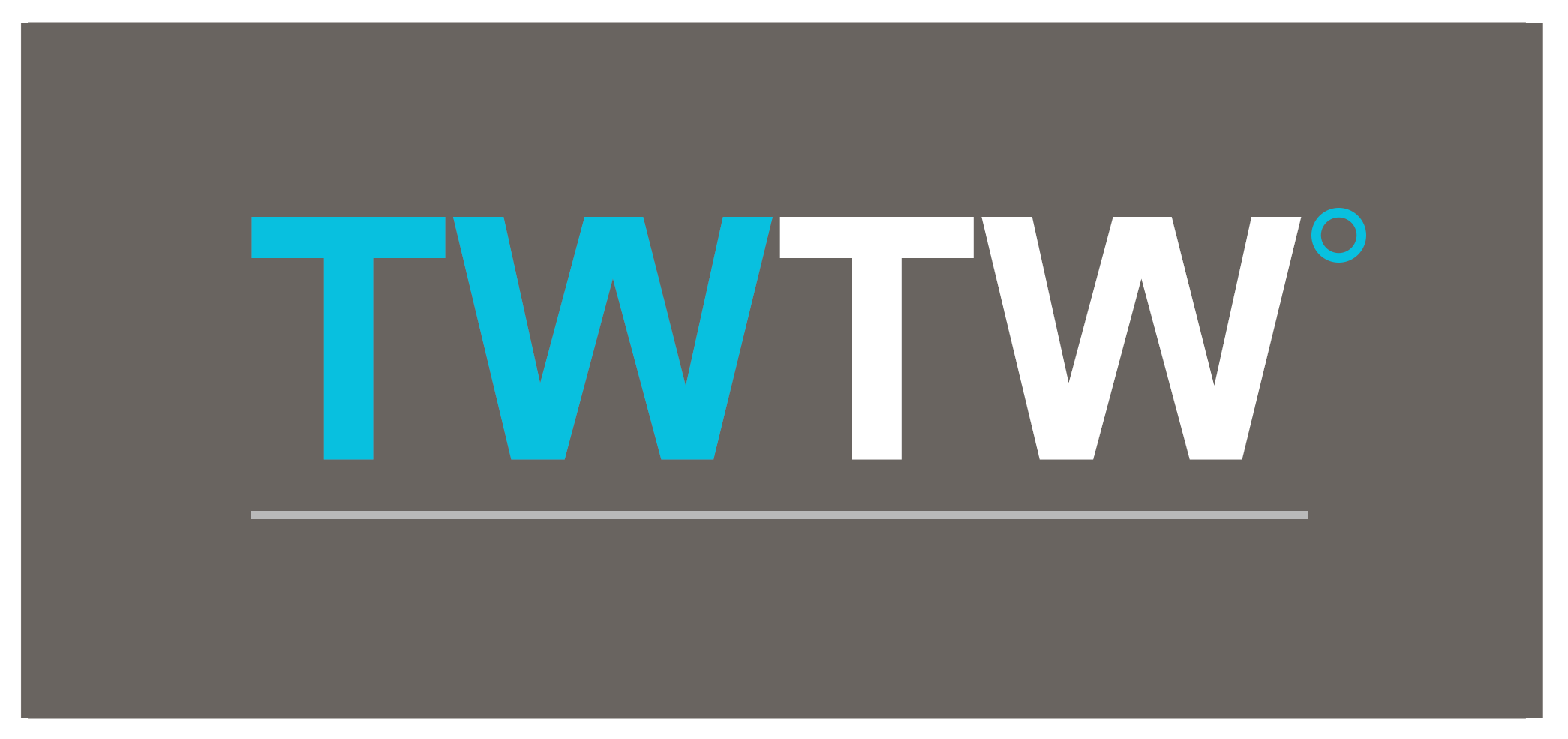 Gross is making a fundamental point. The global economic model has three intractable problems. First, it is in a debt crisis. Too many entities have taken on debt they can never repay. Second, it faces a jobs crisis. Automation and artificial intelligence are decimating jobs. Robots may be able to build things better, cheaper and quicker, but if a larger number of people no longer have jobs, then who will buy these things? Third, inequality is deepening and widening chasms in society, shaking social contracts that have held for decades. Violence increases in deeply divided societies. As inequality has increased, so has the violence in countries like Mexico, South Africa and India.
Gross is making a fundamental point. The global economic model has three intractable problems. First, it is in a debt crisis. Too many entities have taken on debt they can never repay. Second, it faces a jobs crisis. Automation and artificial intelligence are decimating jobs. Robots may be able to build things better, cheaper and quicker, but if a larger number of people no longer have jobs, then who will buy these things? Third, inequality is deepening and widening chasms in society, shaking social contracts that have held for decades. Violence increases in deeply divided societies. As inequality has increased, so has the violence in countries like Mexico, South Africa and India.
Even as markets stumble, 14 million people in southern Africa are facing hunger because last year’s harvest was damaged by El Nino. Many believe Ethiopia’s drought to be “as bad for children as Syria’s war.” More than 10 million people need food aid and 400,000 children suffer malnutrition.
Finally, the Zika virus is causing alarm in South America. The World Health Organization estimates that the virus is likely to spread across the Americas. It leads to below-average head size and a smaller than average brain size in children born to mothers suffering from the virus.
A new economic system that has space for tackling long-term problems such as the Zika virus and hunger is the need of the hour. Life is more than stuff and markets cannot be all.
*[You can receive “The World This Week” directly in your inbox by subscribing to our mailing list. Simply visit Fair Observer and enter your email address in the space provided. Meanwhile, please find below five of our finest articles for the week.]
The US Election Year Foreign Policy Spectacular
Landon Shroder looks at the turbulent debate on Middle East foreign policy in what appears to be a near endless campaign cycle for the next American president.
Now that the US presidential election is only a mere 291 days away from maturity, we must content ourselves with the inevitable salvo of attack ads, over the top rhetoric and fearmongering—all of which will be linked to the interminable foreign policy debate that is helping shape the 2016 election. Naturally, the Middle East will remain the most hallowed territory, as each candidate squabbles over the most climacteric and esoteric foreign policy challenges since World War II. Or as the esteemed P.G. Wodehouse might surmise, “Hell’s foundations have begun quivering.”
As consumers of politics then, our challenge not only becomes making sense of the arguments that have already been presented, but anticipating those that might develop in response to the rapid pace of events throughout the Middle East. This is essential because… Read more
Africa Needs to Focus on Sound Immigration Policies
Africa is on the fast track of economic growth, but the continent must reform its internal immigration policies.
In 2015, South Africa was shocked by xenophobic attacks, a startling déjà vu of similar attacks in 2008 that led to the killing of over 60 South Africans and was met with worldwide condemnations. Following that, at least five foreigners were killed and thousands forced to seek refuge.
This brings the issue of immigration in South Africa to the forefront, but also provides an opportunity to analyze the current state and future of immigration policy on the African continent in the face of unequal economic growth among nations and changing cross-country immigration dynamics.
Since the continent’s wave of independence, African governments and regional organizations have done very little to address immigration policy within Africa. For many governments, the facts on the nature and consequences of immigration are largely unknown, and the appropriate language and policy frameworks for tackling this inevitable aspect of… Read more
How Viable is the Alternative to Capitalism?
There are risks that lie ahead if the defects in the global economic system are not tackled. But what’s the other option?
Paul Mason, the economics editor of Britain’s Channel 4 News, has written Postcapitalism: A Guide to Our Future, which offers a critique of the existing global capitalist system. He points out that capitalism is only 200 years old and has gone through many changes. Economic systems do not last forever and can sometimes collapse—suddenly and painfully.
In its present phase, global capitalism is, according to Mason, “driven by network technology, mobile communications, a truly global marketplace and information goods.” He says this model is now stalling.
Mason argues that many of the innovations now emerging are ones that derive from discoveries that produce services that are (or should be) intrinsically free, in the sense that once invented, they can be reproduced indefinitely, almost without extra cost. New software applications and new pharmaceuticals are, for example, profitable only… Read more
Exploring Our Inner Gandhi
Can returning to the ideals of Mahatma Gandhi bring about a revival of dignity?
Earnestness, it is aptly said, is the font of authority or authenticity, where “auto” means “self”—your original instrument and “entea”—or tool connotes communication. This explains why our credibility as a speaker or leader in any field of activity, for example, is directly correlated to the extent to which the audience perceives our genuineness. In other words, our greatest effectiveness comes from being oneself, because who you are communicates more than what you say.
A classical paradigm would bring home this “canon” best. A journalist once asked Mahadev Desai, Mahatma Gandhi’s personal secretary, to be “let in” on the “secret chemistry” of the Mahatma’s ability to hold audiences in rapt—if not hypnotic—enchantment for hours without a script or notes. Desai responded: “What Gandhi thinks, what he feels, what he says, and what he does, are all the same. He does not need notes… Read more
Taiwan Ruffles China’s Feathers
With the spotlight on Taiwan and China, the rise of Tsai is a sign of shifting political times in East Asia.
Bestowed with its own hashtag and seen as “historic,” the electoral victory of President-Elect Tsai Ing-wen and the Democratic Progressive Party (DPP) has shaken up the political landscape in Taiwan. But it’s not just the island-nation that is holding its breath in anticipation of change. The results of the general election on January 16 have inevitably shifted political tectonics for China and East Asia.
The DPP’s decisive win against the former ruling party, the Kuomintang (KMT), by a margin of more than 20% was not completely unprecedented. Its victory had been predicted to be “easy,” due to its plans of slowing down the state’s reconciliation with Mainland China.
Throughout incumbent President Ma Ying-jeou’s terms in office since 2008, numerous pro-China agreements were signed to promote greater trade, tourism and investment between Taiwan and China. To top it off, Ma… Read more
The views expressed in this article are the author’s own and do not necessarily reflect Fair Observer’s editorial policy.
Photo Credit: Steve Heap / Creativa Images / Shutterstock.com
 We bring you perspectives from around the world. Help us to inform and educate. Your donation is tax-deductible. Join over 400 people to become a donor or you could choose to be a sponsor.
We bring you perspectives from around the world. Help us to inform and educate. Your donation is tax-deductible. Join over 400 people to become a donor or you could choose to be a sponsor.
Support Fair Observer
We rely on your support for our independence, diversity and quality.
For more than 10 years, Fair Observer has been free, fair and independent. No billionaire owns us, no advertisers control us. We are a reader-supported nonprofit. Unlike many other publications, we keep our content free for readers regardless of where they live or whether they can afford to pay. We have no paywalls and no ads.
In the post-truth era of fake news, echo chambers and filter bubbles, we publish a plurality of perspectives from around the world. Anyone can publish with us, but everyone goes through a rigorous editorial process. So, you get fact-checked, well-reasoned content instead of noise.
We publish 2,500+ voices from 90+ countries. We also conduct education and training programs
on subjects ranging from digital media and journalism to writing and critical thinking. This
doesn’t come cheap. Servers, editors, trainers and web developers cost
money.
Please consider supporting us on a regular basis as a recurring donor or a
sustaining member.
Will you support FO’s journalism?
We rely on your support for our independence, diversity and quality.


